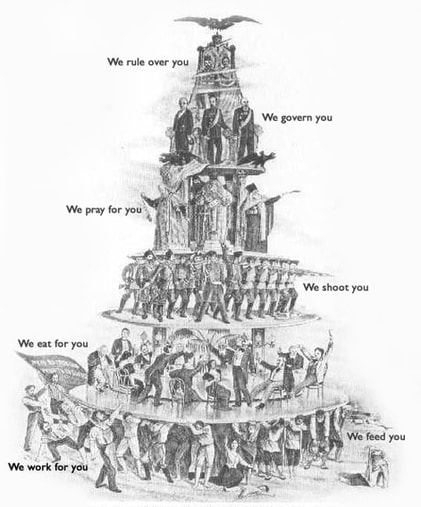Who were the opposition groups?
Between 1900 and 1914 opposition groups grew in Russia. These groups varied greatly in their aims, members, and success. It is important that you are able to distinguish these different groups, explain who were most threatening to the Tsar and how they developed in this period.
Why was there opposition to ths Tsar?
For each of these pictures imagine you have asked the people in them why they are opposed to the Tsar. What would they say? Use the following words in your answers:
- Mir / Russo-Japanese / Tuition / Fundamental laws / Redemption payments / Conditions / Little Father / Lena goldfields / Slow growth / Stolypin's necktie / Vyborg assembly / Electoral laws (1907) / Duma.
- Mir / Russo-Japanese / Tuition / Fundamental laws / Redemption payments / Conditions / Little Father / Lena goldfields / Slow growth / Stolypin's necktie / Vyborg assembly / Electoral laws (1907) / Duma.
Assessing the strength of the opposition:
It is important to think about not just why there was opposition, but also who the groups were and how powerful they were relatively. Use the links below, then produce your own set of top trump style cards to 'rank' the opposition groups. You can be creative and come up with your own criteria OR you can use the ppt. template as an example of the style. You should produce cards for; The Octobrists, The Mensheviks, The Liberals, The Bolsheviks, The Social Revolutionaries and the Kadets.
| opposition_cards_example.pptx | |
| File Size: | 107 kb |
| File Type: | pptx |
Answer the questions in the document below to consolidate your understanding.
| opposition_to_tsardom.doc | |
| File Size: | 44 kb |
| File Type: | doc |
| the_end_of_tsarism_1914.doc | |
| File Size: | 30 kb |
| File Type: | doc |
Key misconceptions / Confusions:
This is a few problems that students have in this area traditionally, if you are really struggling with the opposition groups then this may help. If you have other questions please post them on the answer garden link below:
- The Socialist Revolutionaries wanted a PEASANT led revolution, the Social Democrats wanted a WORKER based revolution.
- The Mensheviks and Bolsheviks were BOTH part of the Social Democrats.
- They split over the SIZE of the leadership - the MENSHEVIKS wanted a LARGE group, the BOLSHEVIKS a small group of leaders.
- They also fought over control of their revolutionary newspaper ISKRA (The Spark).
- LENIN led the BOLSHEVIKS.
- TROTSKY was a menshevik and only became a bolshevik during the 1917 revolution.
- The Socialist Revolutionaries wanted a PEASANT led revolution, the Social Democrats wanted a WORKER based revolution.
- The Mensheviks and Bolsheviks were BOTH part of the Social Democrats.
- They split over the SIZE of the leadership - the MENSHEVIKS wanted a LARGE group, the BOLSHEVIKS a small group of leaders.
- They also fought over control of their revolutionary newspaper ISKRA (The Spark).
- LENIN led the BOLSHEVIKS.
- TROTSKY was a menshevik and only became a bolshevik during the 1917 revolution.
